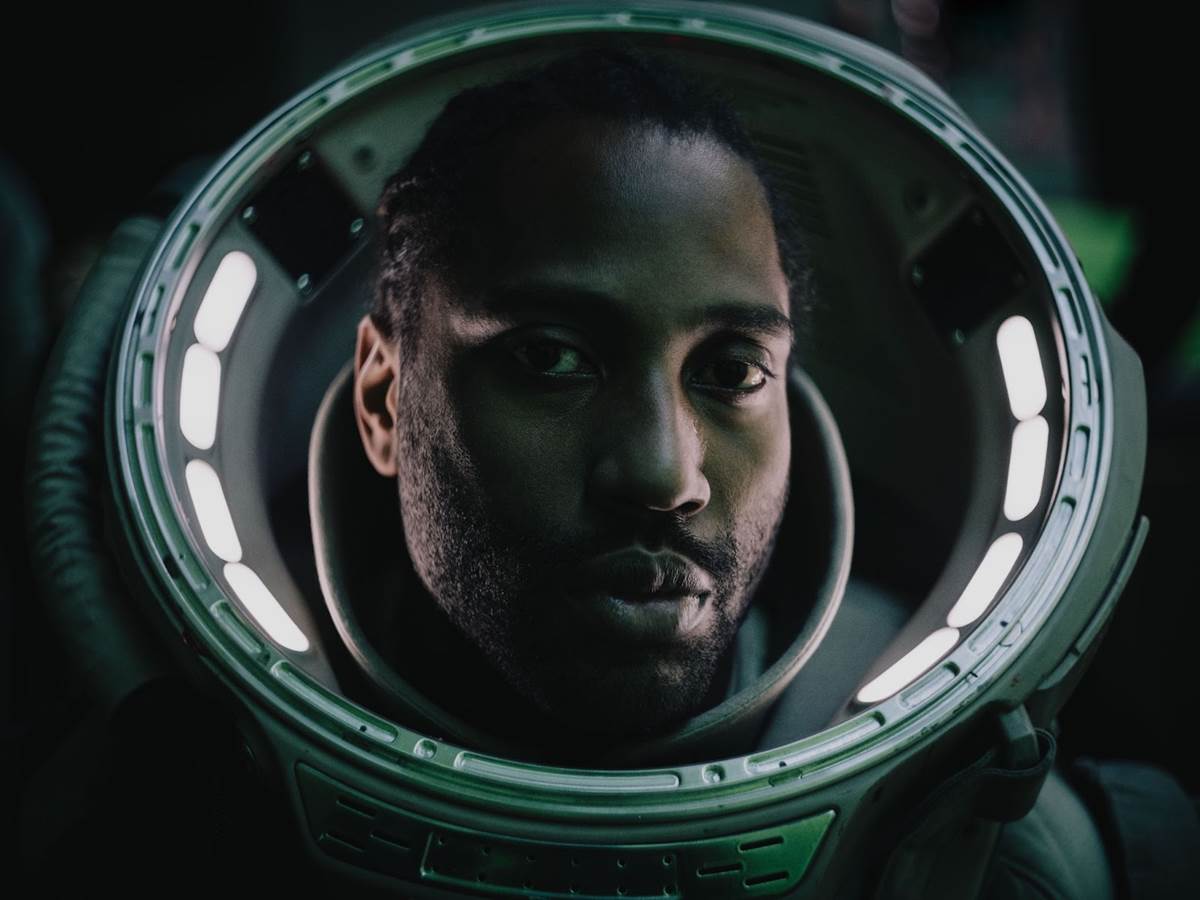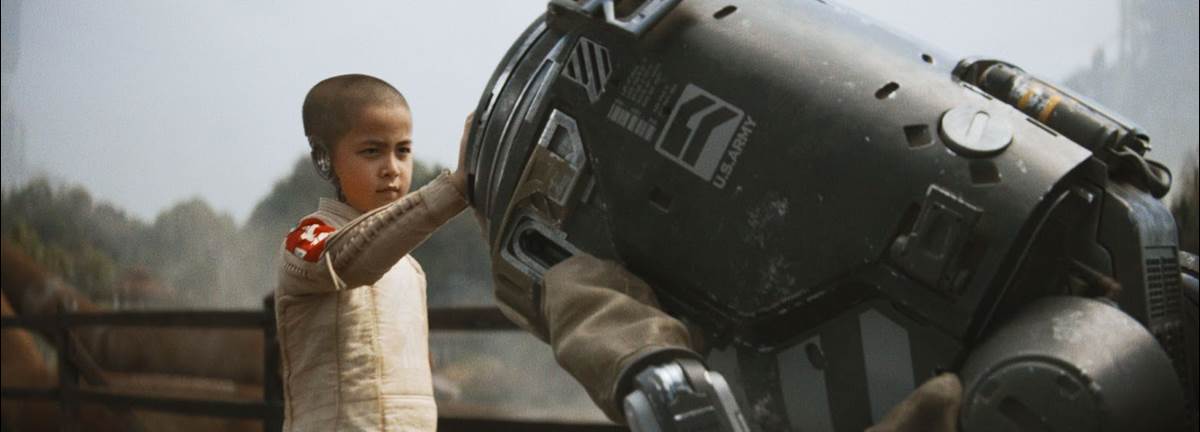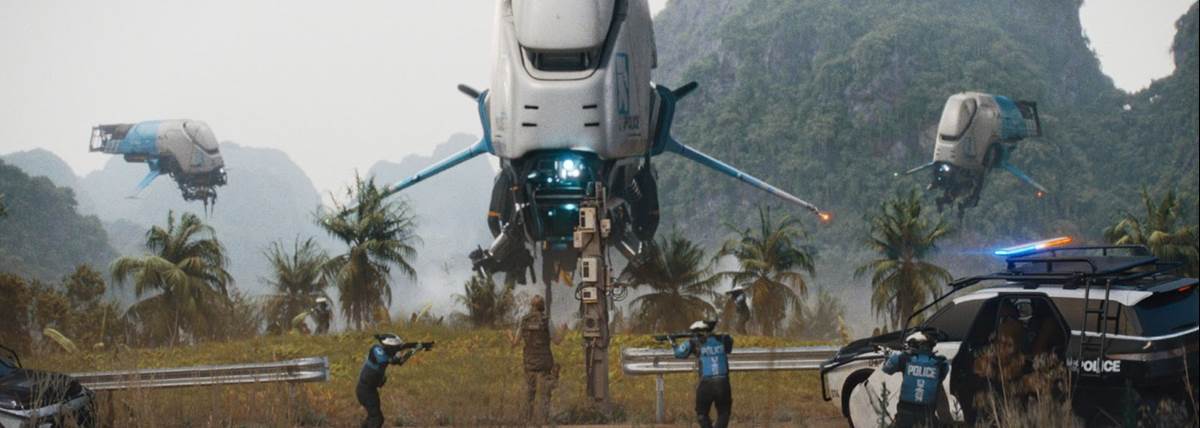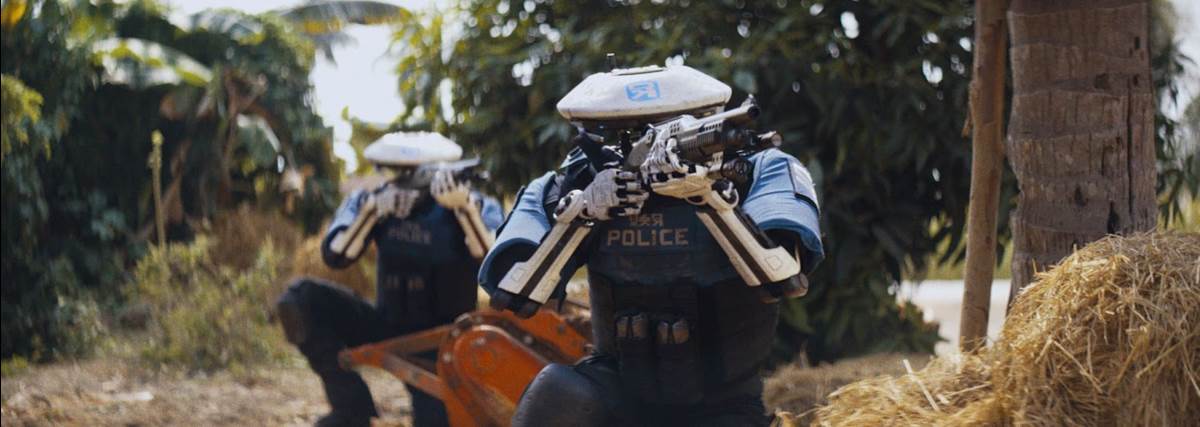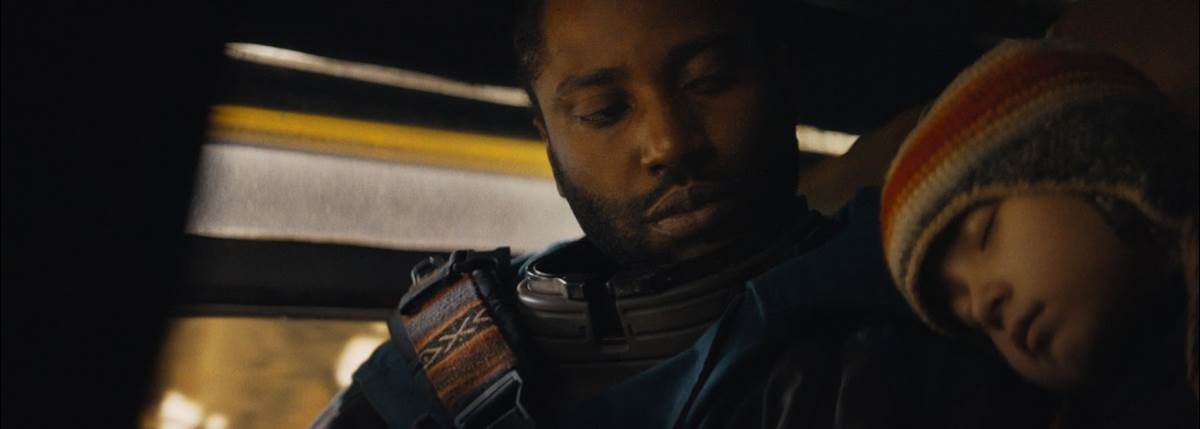Movie Review: Director Gareth Edwards Follows Up “Rogue One” with New Sci-Fi War Film “The Creator”
This week will see the release of the new science-fiction action movie The Creator from director Gareth Edwards (Rogue One: A Star Wars Story, Godzilla [2014], Monsters) and the Disney-owned 20th Century Studios. Below are my mostly spoiler-free thoughts on this film.
I’ve been thinking a lot recently about Hollywood’s history of insisting that artificial intelligence is– or will someday– be worthy of the same rights as human beings. The Star Trek: The Next Generation episode “The Measure of a Man" is a prime example, but there are plenty of others. You have to admit it is a little funny / ironic that the second that quandary actually pops up in real life, those same screenwriters are so quick to dismiss the idea (it’s okay, I don’t think “robots are people too" either) once their own jobs might be in danger. Regardless, it’s an appealing notion on-screen: the concept that A.I. created by humans could one day coexist with them as equals– or even perhaps superiors. That notion is once again the basis for a post-apocalyptic sci-fi extravaganza in the form of Gareth Edwards’s new movie The Creator, which stars Tenet’s John David Washington as a disabled veteran brought back into action in humanity’s war against the machines. It sounds like a tired idea, but Edwards and his co-screenwriter Chris Weitz (Rogue One, About a Boy, Mr. & Mrs. Smith) have found enough ways to make the proceedings feel fresh and original.
The Creator takes place about 40 or so years in the future, after a nuclear bomb (ostensibly set off by the A.I. workforce humanity has enlisted to help with everyday tasks, according to a newsreel that starts the film) destroys Los Angeles and the United States enters into a war with “New Asia," the lone region that is still harboring robots. Washington’s character Joshua was an inside man working with an android (or “Simulant") resistance force long enough that he fell in love with and married its leader Maya, played by Gemma Chan (Eternals), before being extracted. One traumatic wartime experience later and Washington is retired, getting by on his cybernetic limbs and mourning a particularly tragic loss. But when a pair of US military commanders (The Help’s Allison Janney and The Witch’s Ralph Ineson) show up to enlist Joshua in a new mission, he must decide whether he’s up for returning to New Asia in order to track down a secret weapon being developed by the opposition.
That’s the setup, and the payoff involves a whole lot of really cool-looking action, and an entire movie’s worth of jaw-droppingly seamless visual effects provided by Industrial Light & Magic, among a number of other VFX studios listed in the credits. The cast is terrific, and rounded out by newcomer Madeleine Yuna Voyles, turning in quite a memorable performance as a mysterious child that Joshua nicknames Alphie, who may or may not be the key to ending the conflict between the west and the east. It’s also just a tad ironic (or coincidental?) that the relationship between Joshua and Alphie bears a striking resemblance to that of Din Djarin and young Grogu in The Mandalorian, considering Edwards’s Star Wars history. But there’s a bunch of Star Wars DNA in The Creator, from laser-beam gunfights to a superweapon called NOMAD that must be destroyed in order to give the robot rebellion a fighting chance at survival. If Gareth Edwards has a definable style, it’s reflected in both Rogue One and The Creator’s bleak wartime atmosphere, with the audience members thrust into the gritty, unrelenting ground battles as though they are participants themselves.
Looking back on Rogue One’s troubled production, wherein reshoots were ultimately helmed by Andor’s Tony Gilroy, I think it’s wonderful that Edwards has been given the opportunity to prove himself again via The Creator. And prove himself he does, as a director who is capable of delivering tense, energetic action, undeniably convincing dystopian visuals, and genuine heartfelt emotion, all often at the same time. I will say that the movie is peppered with too many instances of overly expository dialogue (likely added in post-production, as it is often spoken off-screen), and consequently feels like it’s spelling things out for its viewers unnecessarily– I think audiences seeking out this kind of entertainment are smarter than Hollywood gives them credit for. I also think the third act feels a little rushed, as though Edwards and his three credited editors were forced to keep the finished film under two-and-a-half hours in length. For that reason I’ll keep my fingers crossed for an eventual director’s cut, but the theatrical version definitely works well enough to recommend in the meantime. Its message may run counter to the creative community’s current take on real-world A.I., but that doesn’t mean we can’t fantasize about a far more idealized universe.
The Creator will be released this Friday, September 29th in theaters nationwide.
My grade: 4 out of 5 wedding ring tracking devices

